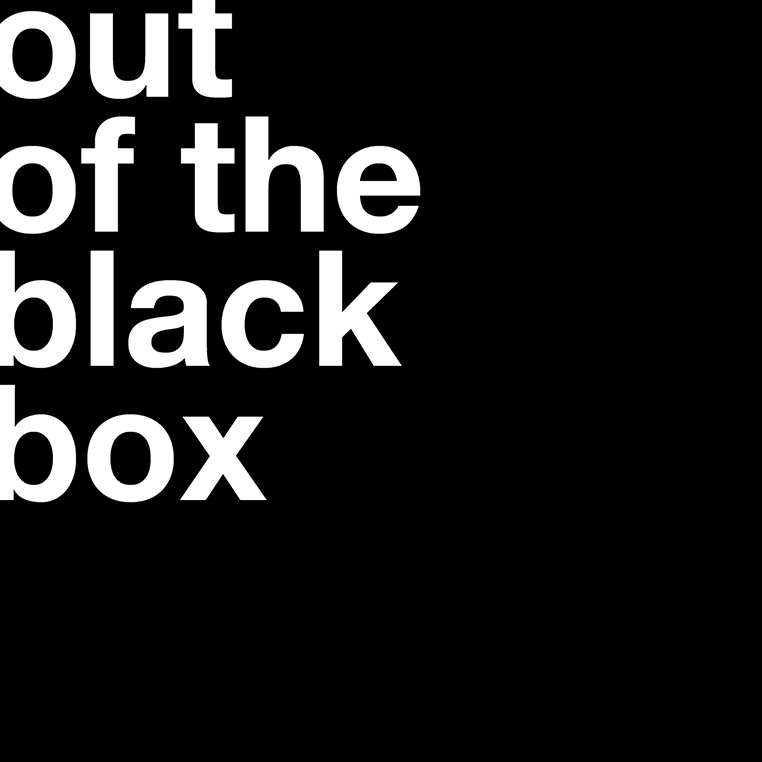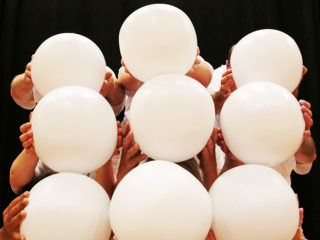
“An Art Asylum : a place where ‘others’ can speak for themselves.”
(Necati Öziri, Head of Studio Я)
Wander down imperial Unter den Linden from the iconic TV Tower, across the River Spree past the mighty neoclassical Berliner Dom and you could easily miss the diminutive Maxim Gorki Theater. Originally a concert hall, it’s now the smallest of Berlin’s 5 state-funded theatres but, under its current Intendantin (Artistic Director), Shermin Langhoff, it’s punching way above its weight. Arguably the noisiest and surely the most political theatre in Berlin, with a powerful commitment to reflect the diversity of all the people living in the city. It’s also the only one that’s run by a woman.
Langhoff, whose parents moved to Germany from Turkey when she was a child, was at the vanguard of German theatre’s response to the arrival of refugees in 2015, taking direct action to support migrants and others. The theatre’s ensemble of around 20 actors is the most diverse in Germany and its core programme is enhanced by all sorts of activity – Gorki X (education & community), Gorki Forum (lectures, public debates, including the hugely popular Berliner Korrespondenzen series), Unternational, (a network of international political theatres dedicated to finding new aesthetic styles, voices and working methods as well as fighting right-wing activity), to name but a few.
At the heart of it all, lies Studio Я, Gorki’s studio theatre. To quote the website: “a place beyond all borders … an art haven for marginalised subjects and ways of thinking, a platform for discussion and creative processes – post national, queer, empowering. A place where discourse transitions smoothly to disco… no approach is excluded, as long as it aims to question and change society.”
And at the heart of all that, is the Exil Ensemble.

I head into the theatre’s delightful garden café to meet the Exil Ensemble’s General Manager, Leonie Webb, and we chat about how it all started. “Migration and exile have always been topics of interest at Gorki,” Leonie explains. “In summer 2015 we did a production, The Situation. Our in-house stage director, Yael Ronen worked with Syrian theatre maker and actor Ayham Majid Agha, and actors, Karim Daoud and Maryam Abu Khaled. The piece was about people who have moved to Berlin from both sides of the West Bank Wall in the Middle East, and now live here as neighbours with long-established German Palestinians and Lebanese. And as more exiled people came to Berlin later in 2015, the Gorki team developed the idea of the Exil Ensemble.
The concept was to create a space for artists who can’t work at home. It’s a company of 7 actors. Some were already in Germany, some were still abroad. They came from Syria, Afghanistan, Palestine – we were keen to mix the cultures. And the idea is to provide a space, where the artists can be creative again, as well as trying to help them settle into their new country, with new people, a new language, a new culture. We got funding (from public trusts ‘Kulturstiftung des Bundes‘ and ’Lotto Stiftung‘ and the private foundation ‘Stiftung Mercator’) for 2 years and the ensemble is performing in productions and leading public workshops. They’re also taking part in master classes about German theatre – learning about writers, practice, cultural studies in general, music, movement – and of course, intensive German classes. Ultimately the goal is to equip them with the understanding, skills and experience needed to work anywhere in the German language theatre world, whilst firmly retaining their own identity.”
Their work also gives German theatregoers an opportunity, to see their world through different eyes. Langhoff terms this, ‘desintegration’: opening up German society to celebrating and preserving multiculturalism, rather than the oft-proposed integration, which homogenises everyone into whatever is meant by ‘German-ness’.
As the Exil Ensemble came into being, the Head of Studio Я was Necati Öziri, also writer of the fabulously dynamic Get Deutsch or Die Tryin’ . He’s now moved on to run Shifting Perspectives, the international strand of Germany’s Theatertreffen, where I spoke with him earlier in the year. “The basic idea was not to talk about ‘others’ but that ‘others’ should speak for themselves,” said Öziri, “We offered a safe space for them to work – an Art Asylum. The programme wasn’t fixed across the season, so the work could be experimental and develop at its own pace. It was for them to determine what happened, and over time, they moved away from representing their direct experience toward a post-migrant approach, so that the repertoire itself became diverse.”

To date, the Exil Ensemble have presented 6 productions: Wonderland, a workshop based on Alice considering the social rules of this new homeland. Then, the acclaimed Winterreise working with Israeli director, Yael Ronen, exploring how to find a place in a new culture through the framework of a bus tour to key places around Germany, a key element actually being the unexpected experiences they found along the way. So historic Weimar becomes about the nearby Buchenwald concentration camp, beautiful Dresden is marred by PEGIDA (anti-refugee) demos and so on. Next, came an engrossing semi-immersive production about the Syrian war, Skelett eines Elefanten in der Wüste written and directed by Agha, followed by Die Hamletmaschine, Heiner Müller’s mash-up of Hamlet, intercut with Syrian war references from Agha, with the cast as clowns, directed by German director, Sebastian Nübling.
“There’s not one artistic line that we wanted to go down,” says Leonie, “Most recently the ensemble have worked with Christian Weise on Elizaveta Bam, a piece of absurdist theatre from Russian surrealist, Daniil Kharms. This was a huge challenge and the first show that was completely in German. They worked so hard on this production, bringing their own perspective to it and we were all blown away by their performances. It helped us to understand the text in a new way.”
“We try to tour our different productions,” Leonie continues, “partly to get the actors out of Berlin so they can discover other cities. When this project first started, we wanted to show the ensemble various parts of Germany, so we put them on a bus and the team created Winterreise from that experience. The production turns around the point of view – it doesn’t portray our view of our newly arrived colleagues, but explores how they experience and see the Germans. Now we’ve toured that show to each of the cities visited and more besides. This week some of the ensemble are returning from performing Skelett in Paris. But touring the pieces is also about showing other countries what’s possible. It’s a great way to reach a wider and very different audience. Audiences in other cities and countries react differently to the performances, because of their own experiences of this topic. This makes the whole experience richer and more varied for our ensemble as well.”
So, what’s worked best? Leonie ponders a moment. “It’s all been great,” she smiles, “the ensemble have done a lot of outreach work too, teaming up with the theatre’s pedagogic department (GorkiX) to work with schools and refugee groups. These workshops also offer positive role models to the kids – you know, ‘Look what we can do!’. That’s been brilliant. Tahera from the ensemble really connects with young workshop attendees and it has been great seeing how they change over the course of the workshop programme – opening up to her, building up self-confidence and dealing with their experiences. We also bring in other international artists to do workshops with the ensemble, which again lets them experience various perspectives. So maybe the best thing has been lots of small things coming together, to create a really impactful project.”
“Shermin coined the phrase, ‘post-migrant’ and that’s where it’s all going now,” she continues. “Of course it’s super-important to talk about the experiences and try to process them, but people here often forget that refugees are more than this. They’re defined by much more than a war that was put upon them. They’re a mum, a dad, a sister, an actor, a tennis player – they’re people. And it’s about triggering people’s emotions as fellow humans. For me personally, I don’t mind if audiences leave a production and say they didn’t like it, what is important is to make them think and feel and discuss something, and as long as that happens, I’m happy.”
So how about those audiences? Gorki’s seen a remarkable increase in audience over the past 2-3 years and they’re noticeably younger than in the other major Berlin theatres. Politicised young people – how has that happened? “Our diverse and politically challenging programming,” says Leonie immediately. “And the studio works so well – it’s where we dare things artistically. Young audiences especially like its flexibility, the way the stage layout changes all the time. The whole space is really informal, the bar’s friendly, we don’t care how you dress and we genuinely want to know what you think. Every month we have several audience talkback sessions and people hang around and talk, talk, talk! We create space for people to create their own opinions. We challenge them and demand their voice. And they feel accepted for who they are. We also create a lot of projects and activities like the Roma Biennale, programming that goes beyond theatre. Our brand stands for more than shows; it stands for challenging opinions and for inclusion – not just ethnic identity, sexuality, religion, but everything – Gorki’s about a lifestyle. And we let people in. Like this space we’re sitting in – it’s a public canteen and garden and people come to eat lunch here. It might be their first contact with the theatre and suddenly they might buy a ticket and get involved. That doesn’t happen at many other theatres.
“Shermin’s really good at seeing needs, identifying who we can target, who’s not represented already, ideas that people want to think about. It’s not just about ethnicity. And we don’t just want to speak to one part of the pie. We’re a repertory theatre – we have a responsibility that flows from our funding. Bringing people in from everywhere, anywhere – you offer their stories and the people will come.”
Photo credits
Homepage : Hamletmaschine production poster – detail.
Main photo : The Exil Ensemble.
(Original images © Esra Rotthoff courtesy of Maxim Gorki Theater)
31 May 2018:
Exil Ensemble, Studio Я
Maxim Gorki Theater, Berlin






Leave a Reply
You must be logged in to post a comment.